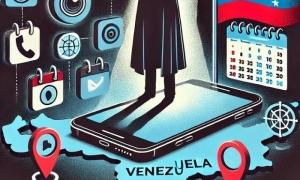During the month of July and what has transcended of August, this country is placed -according to the company Kapersky- as the most attacked in South America.
This is demonstrated by the data offered by the Minister of Science and Technology, Gabriela Jiménez, before the National Defense Council and the Council of State, which met jointly.
Twenty-five State institutions were attacked, to which 40 are being investigated. Among them are companies, mayors’ offices, governors’ offices, private entities and media, such as the multimedia TeleSur, Radio Nacional de Venezuela and La Iguana TV.
According to the Minister, 65 % of the attacks were focused on denial of service, which affected different state servers and international links, with which the Internet service is provided to the country.
“Over the weekend we observed the hijacking of Cantv’s IPs (Internet Protocol). The IPS are falsified and when the users want to have links with any of the services, they get a completely different portal and the servers collapse as a whole,” she explained.
Initially, the attacks per minute were 30 million. Gradually they increased. “We have had no rest during the cyberattacks, all state platforms have been attacked in multiple ways.”
Jiménez argued that those responsible for these acts have spent some 150 million dollars in their terrorist activity. The estimated cost of a large-scale cyberattack -capable of generating hundreds of gigabytes per second- could be between 500 and 1,000 dollars per hour, while that of a TBPs amounts to 1,000 to 5,000 dollars.
We are certainly facing a multidimensional attack, which, with its various forms of aggression, seeks to destabilize the country and the State when it comes to procuring internal welfare and to make the population uncomfortable in order to exacerbate their spirits.
Precisely in an interview, she said: “Recently, we were seeing that Conviasa’s payroll was published. When they publish payrolls of users, military, officials, what they want is to generate terror, terrorism, uncertainty.”
Regarding the origin and direction of this digital war, she revealed that 98 % comes from farm services with sophisticated technology. And less than 2 %, from mobile technology platforms.
High volume and diversity, sophistication and financing… “Who could have the capabilities to carry out an attack of this magnitude? A country like the United States, which has agencies, such as the nsa, with a budget to deal with attacks of high magnitude and duration,” she remarked.
It is not surprising, then, that Maduro has signed a Presidential Decree through which he ordered the immediate creation of the National Cybersecurity Council, to face cyberattacks on Venezuela, protect its technological systems and guarantee the liberation of all the country’s command systems.
In addition, on August 14th, in an ordinary session of the National Assembly, the Law for the Control, Regulation, Performance and Financing of Non-Governmental Organizations and Non-Profit Organizations was approved. While previously it was proposed the approval of a Law against fascism, neo-fascism and similar expressions.
“The greatest vaccine against hate crimes and fascism propagated and stimulated by social networks, is timely, forceful and courageous justice,” said the president, at the joint meeting.
Timely justice in the face of cyber-attacks
65% of the attacks were focused on denial of service, affecting various state servers and international links

 Escambray ENGLISH EDITION
Escambray ENGLISH EDITION




Escambray reserves the right to publish comments.